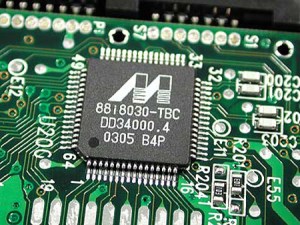by: Kelly A. Williams, a partner at Picadio Sneath Miller & Norton, P.C.
 As a follow up to Robert Wagner’s post, “Discovery of Facebook Accounts,” I will take a closer look at the analysis by Judge Wettick in Trail v. Lesko, No. GD-10-0172249 (July 3, 2012) for determining what a party needs to establish before Judge Wettick will order disclosure of non-public Facebook, or other social networking, content. I will also provide an update on whether other courts have relied upon Judge Wettick’s opinion.
As a follow up to Robert Wagner’s post, “Discovery of Facebook Accounts,” I will take a closer look at the analysis by Judge Wettick in Trail v. Lesko, No. GD-10-0172249 (July 3, 2012) for determining what a party needs to establish before Judge Wettick will order disclosure of non-public Facebook, or other social networking, content. I will also provide an update on whether other courts have relied upon Judge Wettick’s opinion.
At the outset, Judge Wettick notes that no appellate court in Pennsylvania has addressed discovery requests for information contained within an individual’s Facebook profile. He reviews the approach of other trial judges in Pennsylvania to date and concludes that most Pennsylvania “courts recognize the need for a threshold showing of relevance prior to discovery of any kind, and have nearly all required a party seeking discovery in these cases to articulate some facts that suggest relevant information may be contained within the non-public portions of the profile. To this end, the courts have relied on information contained in the publicly available portions of a user’s profile to form a basis for further discovery.”
Judge Wettick also found the decisions of other state and federal courts to be largely in line with Pennsylvania case law. As in Pennsylvania, other courts agree that the content posted by someone on Facebook is not privileged, either because communications with “Friends” are not privileged or because, if the communications were privileged, such privilege was waived by sharing the content with others. On the other hand, the courts disfavor “fishing expeditions” and tend to require some evidence suggesting the existence of relevant information prior to ordering access to a person’s non-public social media information. According to Judge Wettick, courts from other jurisdictions have taken more steps than Pennsylvania courts, however, to require more narrowly tailored discovery orders or have even relied on counsel to review his or her client’s profile for relevant information in the first instance.
Trail v. Lesko was a personal injury case arising from a motor vehicle accident which was allegedly caused by defendant’s drunk driving. Judge Wettick indicated that he was basing his rulings on Pennsylvania Rule of Civil Procedure 4011(b), which provides that “[n]o discovery or deposition shall be permitted which . . . (b) would cause unreasonable annoyance, embarrassment, oppression, burden or expense to the deponent or any person or party . . . .” Judge Wettick reasoned that a court order that gives an opposing party access to another’s non-public Facebook page “is intrusive because the opposing party is likely to gain access to a great deal of information that has nothing to do with the litigation and may cause embarrassment if viewed by persons who are not “Friends.” Because such discovery is intrusive, it is protected by Rule 4011 “where the party seeking discovery has not shown a sufficient likelihood that such discovery will provide relevant evidence, not otherwise available, that will support the case of the party seeking discovery.”
However, Judge Wettick did acknowledge that the level of intrusiveness for a Facebook page, containing information made available to others who have no obligation to keep it confidential, is likely to be low. Therefore, someone seeking to obtain such information will only need to show that the discovery “is reasonably likely to furnish relevant evidence, not available elsewhere, that will have an impact on the outcome of the case.”
Applying this reasoning to the facts of the case before him, Judge Wettick found that neither party had shown sufficient need for discovery of each other’s non-public Facebook pages. Plaintiff was not entitled to the information because defendant had already made admissions in response to requests for admissions that made the request for Facebook content unnecessary, and defendant was not entitled to the information because the photos from plaintiff’s public page did not contain any information that suggested plaintiff’s personal injury claims were called into question.
With this opinion, Judge Wettick is informing litigators that while he is not opposed to permitting discovery of non-public social media, parties need to show that the social media that a person otherwise assumes is directed solely to a limited audience, i.e. their “friends,” is reasonably likely to be relevant to the claims in the case and is not available elsewhere. In short, Judge Wettick attempts to balance a person’s privacy interests with those of a party seeking to prove or defend his or her case.
So far, no other courts have cited Judge Wettick’s opinion. We will continue to watch for Pennsylvania court opinions following or rejecting Judge Wettick’s approach and for any rulings from the Pennsylvania appellate courts on the issue of discovery of social media.
Like this:
Like Loading...


 From “ars technica“* publication: One of the largest patent verdict cases ever was obtained by Carnegie Mellon University (CMU) in Pittsburgh Federal District Court in 2012 in the courtroom of the Hon. Nora Barry Fischer as presiding judge. CMU
From “ars technica“* publication: One of the largest patent verdict cases ever was obtained by Carnegie Mellon University (CMU) in Pittsburgh Federal District Court in 2012 in the courtroom of the Hon. Nora Barry Fischer as presiding judge. CMU 








 RSS - Posts
RSS - Posts
You must be logged in to post a comment.